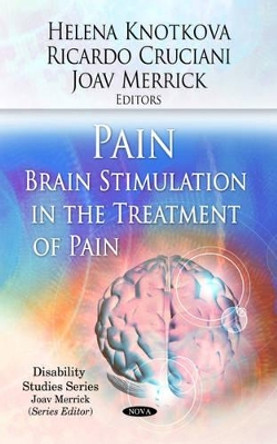Emotions are often seen as an intrinsic part of what makes us human; they underpin how we feel about ourselves, and our interactions with others. New discoveries continue to reveal more about how emotion translates into brain activity - what is actually happening in our brains to make us 'feel' the way we do. They are also illuminating our understanding of dysfunctional emotions - the emotional basis of addiction, or the maladaptive emotional behaviors that characterize our difficult, and sometimes pathological, relationship with food. Emotion presents the fundamental principles of the neural mechanisms underlying emotional processing as well as reviewing our current scientific understanding of pleasure and emotion. The book takes the reader from everyday conceptions of pleasure and emotion through to the latest insights into the nature and functions of emotions at the interface of psychology and neuroscience, before exploring topics such as the nature of subjective experience and future possibilities including emotions in silico. Throughout, the book focuses on the principles of reward systems in the brain and its links with mainstream psychology, helping the reader to understand the function and nature of emotion and pleasure, and its relevance to the rest of psychology. In addition, it also offers a clear understanding of fundamental topics such as the social emotions, individual emotions and the role of emotion and pleasure in decision making. The book also encourages the reader to achieve a better understanding of emotional disorders, which are central to clinical psychology and the treatment of a range of psychiatric disorders. Emotion is the ideal guide for any student wanting a clear, contemporary introduction to this complex yet fascinating subject. Online Resource Centre For registered adopters of the book: - Figures from the book in electronic format - A series of Journal Clubs - suggested papers and discussion questions related to topics featured in the book
About the AuthorMorten L. Kringelbach, D.Phil., is the director of the Hedonia: TrygFonden Research Group - a transnational research group based in both Oxford, UK and Aarhus, Denmark. He is a Senior Research Fellow in the Department of Psychiatry, University of Oxford and a Professor at Aarhus University, Denmark, as well as Senior Research Fellow and College Lecturer in Neuroscience at The Queen's College, University of Oxford. Dr Helen Phillips is a journalist, writer and consultant, specialising in neuroscience and life sciences, for print, online and broadcast media. Dr Phillips obtained her first degree in Natural Sciences from the University of Cambridge and was awarded a DPhil in Neuroscience from the University of Sussex.
ReviewsAn informative text which provides enough information for students to get to grips with the biological aspects of emotion, arranged in a logical and accessible format. It is user friendly and appealing. * Karen Eaton-Thomas, University of Wales Trinity Saint David *
A really well written and comprehensive introduction to emotion, covering all the main issues and theories... academically sound, up to date and readable. * Inspector Insight, September 2014 *
A very useful link between neuroscience and the physiology underpinning behaviour and psychology. * Dr Steve Tucker, University of Aberdeen *
Book InformationISBN 9780199593491
Author Morten L. KringelbachFormat Paperback
Page Count 304
Imprint Oxford University PressPublisher Oxford University Press
Weight(grams) 584g
Dimensions(mm) 247mm * 190mm * 13mm









